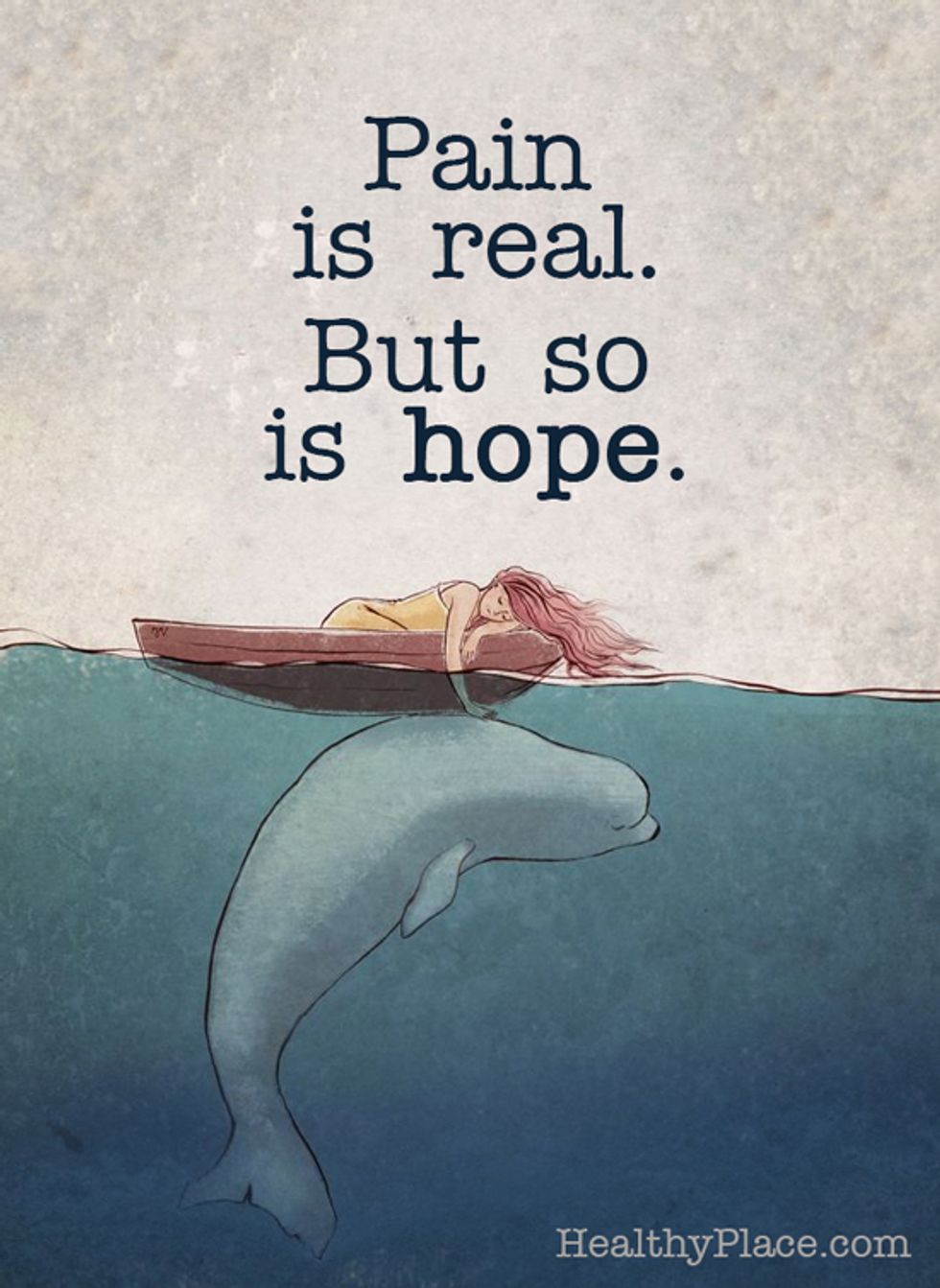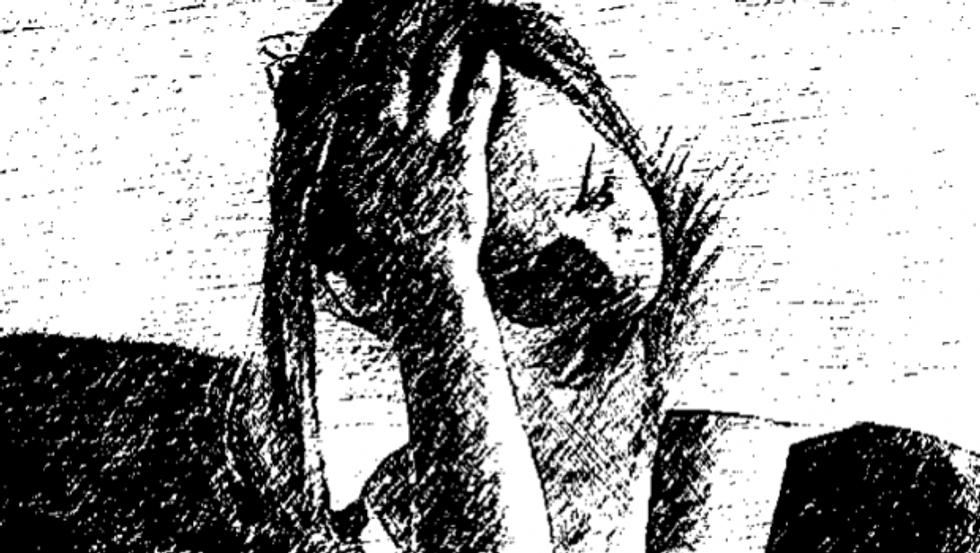I distinctly remember every single day of high school around the time my fifth class ended I would be struck with a piercing pain in my head. It would be overbearing for an hour or so, and then it would turn into a dull pulsing for the rest of the evening. I was tired enough from eight hours of school, several more hours of rehearsal, and then several more hours of studying, but the pain in my head and my stomach amplified the exhaustion and the stress that I was feeling. Now imagine this on a constant loop, a part of your daily routine just as much as arriving to first period, going grocery shopping, and writing AP essays. Occasionally there's relief, a couple of days where your head feels light for the first time in weeks and you can finally finish your dinner without the knots of bile turning feverishly in your stomach. These respites are never long enough.
I've been experiencing this kind of pain for several years now. For the longest time I didn't question it. I knew that I was hurting physically, but I thought it was normal. After a long day at school, I thought it was normal to have piercing headaches. After eating, I thought it was normal to be keeled over with a stomach pain. I didn't address these issues for a couple of reasons. One, kids in school weren't talking about it. I know I couldn't have been the only one, but it was never a subject of discussion among friends. I got this idea that daily pain was just something you have to live with. I needed to ignore it, maybe take a couple of aspirin - whatever I could manage to keep myself in line. Two, in the moments when I couldn't take it anymore and chose to speak up, I was dismissed. It was never harsh, but it was enough to discourage me from bringing it up again. "Drink some water," or "you're just stressed" were a couple of the things that I heard and started repeating to myself over and over again when I was having a painful episode.
The more I've come to understand my body and my brain, the more I've come to understand how much chronic pain affects my day-to-day well-being and likely how it manifests itself. I live with depression and anxiety. Despite these being mental illnesses, the brain and body are inextricably linked. Therefore, I know that it's not completely inaccurate when I'm told that my stomach and head aches are due to stress. It's a stress response, however, that's on overdrive. It's an anxiety disorder that doesn't quit after a nap and a couple of pain relievers.
My anxiety is not limited to intrusive thoughts. It makes itself known physiologically as well, and I think that this aspect of mental illness is frequently overlooked. The autonomous nervous system triggers the body's physiological stress pathways. If one has chemical imbalances in the brain, often linked to anxiety in certain brain areas like the amygdala and the hypothalamus, then these stress pathways become overactive. Anxiety is a multidimensional experience and has to be addressed that way: cognitively, behaviorally, emotionally and physiologically. Meeting the right people and utilizing the right information since going to college has allowed me to take this approach to my health, and I feel more in tune with my brain and body because of it.
Furthermore, I've interacted with several health professionals since these pain symptoms became daily occurrences. In addition to how doctors have belittled my health concerns because of my weight, they have also belittled health concerns related to mental illness. "That's what therapy is for," they say. And yes, psychotherapy can be an incredible tool and one that I've greatly benefited from. However, to not take my concerns about depression and anxiety seriously because you refuse to acknowledge the severity of their physiological symptoms is a grave misjudgment and one that prevents a lot of mentally ill people from seeking care.
The difference in how my therapist talks to me and how my doctor(s) talks to me is astounding. When I talk to my therapist, I feel like my experiences as a human being are allowed to come to life. I'm allowed to be nuanced and inconsistent and unsure. I feel like I'm actually working with someone in order to, hopefully, come to a healthier understanding about my depression and anxiety. When I talk to my doctor, I feel burdened with monotony. I feel like a number, another client to get in and out as quickly and for as much money as possible. I feel like I can't ask questions. I feel like I'm being talked down to. I feel more anxious after I leave than I did when I came in. I know that there are caring, mindful and mental-health aware physicians out there, and hopefully someday I'll meet one. For now, the distrust lingers.
Chronic pain is going to be something that I struggle with as long as I struggle with mental illness. I've come a long way in my willingness to seek help, support and information. Additionally, being a psychology major has completely altered my outlook on the way we tend to perceive "health." I love the increasing knowledge I have on how the brain and body work together. My work is helping me to better understand my own life and ideally one day be able to pass on these understandings to people who need them.
























